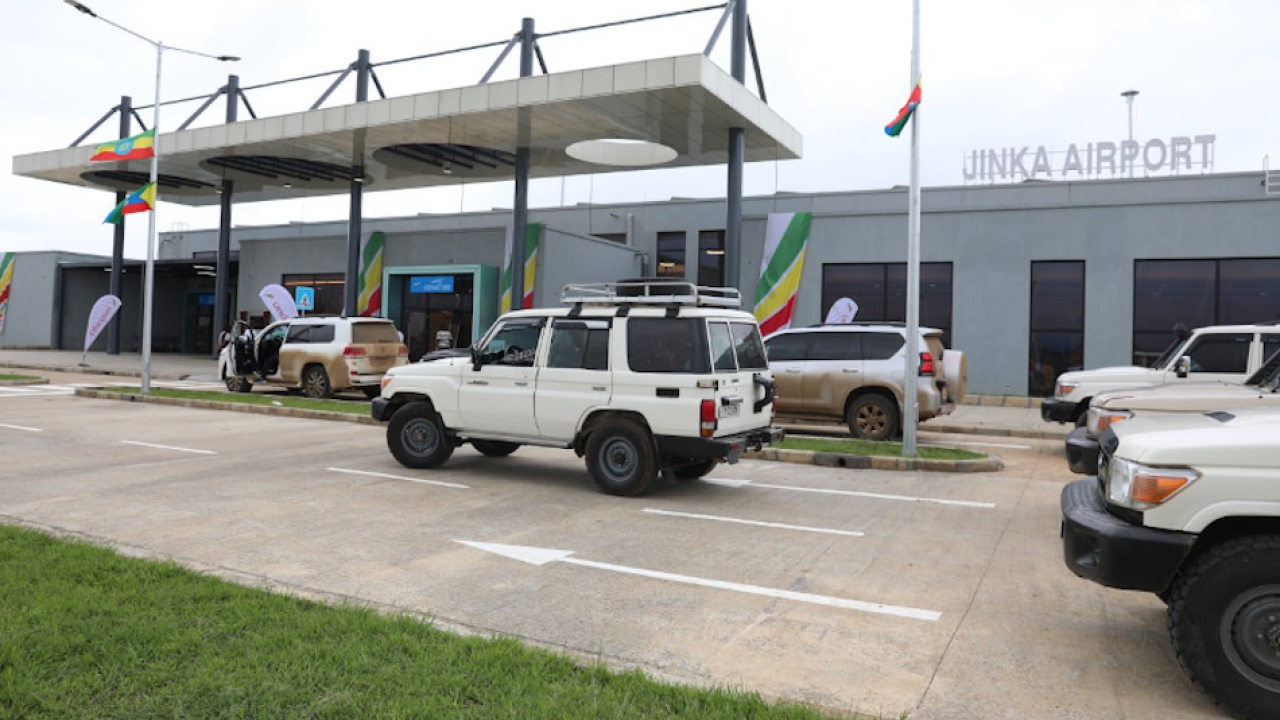Tamale is hotting up
Construction of a new terminal at Tamale Airport in northern Ghana, is under way, while the country's main hub at Accra has become a critical hub for supplies to fight the Covid-19 pandemic.

'Pilgrims’ progress: The expanded airport will include a separate Haj terminal for pilgrims heading to Saudi Arabia.
Work is under way on a major project to expand the northern Ghanaian regional airport of Tamale into an international facility. Alan Dron reports.
The city of Tamale has one of the fastest-growing urban populations in Ghana and the airport’s expansion is designed to improve the economic prospects of what is primarily an agricultural region.
It is hoped that the airport’s expansion will encourage air links to neighbouring countries such as Burkina Faso and Mali.
The work is being carried out by the Ghanaian Government through Ghana Airports Company Ltd (GACL), as part of the government’s objective of encouraging regional hubs for its airports and seaports.
Tamale Airport has already been through an initial expansion phase, which saw the runway extended from 2,400 metres to 3,400 metres and its width from 45 metres to 60 metres, together with a taxiway and expanded apron parking. This has allowed the airport to accommodate wide-body airliners.
The latest expansion phase is also aimed at adhering to the International Civil Aviation Organization (ICAO) requirement that a country should have an alternate airport of similar capacity to its main air transport facility, to act as a diversion location in case of the non-availability of the main site.
The initial expansion at Tamale was carried out by Spanish construction company QGMI, which has now been engaged to undertake Phase II – a new terminal to complement the increased passenger capacity offered by the expanded runway. The latest expansion is being handled by its British subsidiary, QGMI UK.
The current terminal has a capacity of 200,000 passengers a year. The new terminal will double that to 400,000.
Work on Phase II began in July 2019, with construction getting under way in April this year. Completion is scheduled for the end of 2021.
The new terminal is being built in an undeveloped area of the site to improve the airport’s configuration and is seen as the beginning of the development of a new airport city. In addition to the terminal, the project includes a Haj facility for pilgrims heading to Mecca, an access road, landside and airside roads, and ancillary facilities.
QGMI said that the new terminal had been designed to ensure optimised passenger flows and a spacious feel, with the use of local materials being specified.
The design uses steel structures and the facade’s materials can be disassembled and used in a further expansion should the passenger volumes grow over time.
The Ghanaian Government will pay for the project, which is financed by KfW Bank, backed by a UK Export Finance guarantee.
By August, the site had been cleared and prepared, with work under way on the terminal’s foundations and the Haj facility, as well as earthworks and drainage for the access road and car parking.
The bulk of the terminal’s metallic structure, cladding, facade and other structural elements, will start to be shipped from the UK to Ghana in mid-November 2020.
• Meanwhile, in Accra, the country’s government hosted the creation of a United Nations (UN) ‘humanitarian hub’ at the capital’s Kotoka International Airport, handling both passengers and cargo. “These are needed to sustain humanitarian operations that millions of vulnerable people across Africa are depending on during this pandemic,” explained UN World Food Programme representative and country director, Rukia Yacoub.
The first flight for humanitarian workers left Addis Ababa’s Bole International Airport for Kotoka on May 1, opening a new passenger aviation service between a network of regional hubs for the Covid-19 response.
The Accra hub helped to move humanitarian workers to areas where they were most needed, flying them to and from crisis areas amid reduced commercial flight availability and continued travel restrictions.
The regional cargo component of the hub is managed by the UN Humanitarian Response Depot (UNHRD) in Accra and received, stored and dispatched much-needed medical and other non-food items to 40 countries in and outside Africa.
Among the shipments arriving in Accra by military transport aircraft from countries as distant as the UAE and UK, were components for a field hospital that was strategically positioned at the UNHRD, from where it could be quickly dispatched to a designated country for its Covid-19 response.
Stay up to date
Subscribe to the free Times Aerospace newsletter and receive the latest content every week. We'll never share your email address.

